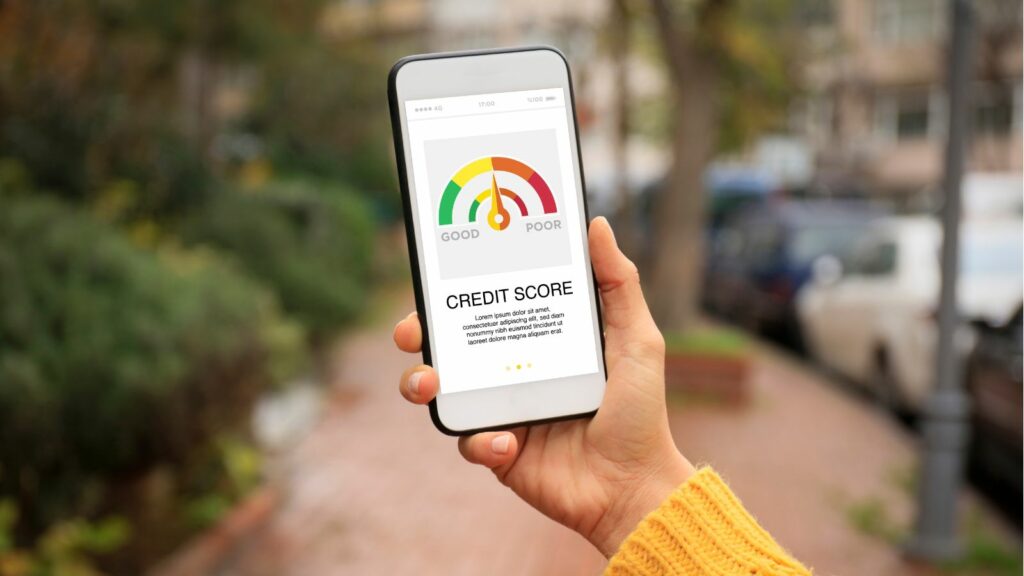Buying a house is a thrilling journey, filled with the promise of fresh beginnings and the hope of creating lasting memories. Yet, it’s a path that involves several crucial steps, each as significant as the other. One such pivotal step is understanding the importance of your credit score, a small number with a big impact. Let’s delve into this crucial aspect to prepare you for home ownership better.

What is a Credit Score?
A credit score is akin to a financial report card, representing your creditworthiness to lenders. It’s a numerical expression derived from an analysis of your credit files, summarizing your history of borrowing and repayments. The journey to understanding your credit score begins with knowing how it’s calculated. Here’s a closer look at the elements that mold your credit score:
Credit History: Your past behavior with credit forms the backbone of your credit score. It tells lenders how responsible you’ve been with managing credit over time, including how promptly you’ve paid your bills, the length of your credit history, and whether you’ve stayed within your credit limits.
Credit Utilization: This is the ratio of your current credit card balances to your credit limits. A lower ratio is viewed more favorably by lenders, as it suggests that you haven’t maxed out your credit cards and can manage credit well.
Types of Credit in Use: The variety of credit accounts you have also influences your score. A mix of credit types, such as unsecured credit cards, retail accounts, installment loans, and mortgage loans could be beneficial. It reflects your ability to manage different types of credit.
New Credit: Opening multiple credit card or loan accounts in a short span can signify greater risk to lenders, especially if you have a short credit history. Each time you apply for a new line of credit, a hard inquiry is made, which can slightly lower your credit score.
Payment History: Your record of paying back loans and credit cards is a strong indicator of your lending risk. Late payments, defaults, and bankruptcies have a significant negative impact on your credit score.
These factors intertwine to form your credit score, a number that ranges from 300 to 850 in most scoring models. The higher your score, the more trustworthy you are financially.
Understanding the anatomy of your credit score is the first step in improving it, paving the way for smoother sailing through the home-buying process. With a solid credit score, not only do the doors of numerous lending options swing wide open, but the dream of owning your home comes within grasp.
Discovering Your Credit Score and Obtaining Your Credit Reports
Unraveling the mystery of your credit score is akin to taking a financial snapshot, an essential insight for any aspiring homeowner. Here’s a step-by-step guide on how to access your credit score and reports:
Accessing Your Credit Score: Various channels are available for accessing your credit score. Many lenders, financial institutions, and credit card companies offer this service at no additional cost to their customers. Additionally, a host of online platforms provide credit scores either for free or for a nominal fee. It’s prudent to utilize reputable sources to ensure the accuracy of the information provided.
Fetching Your Credit Reports: Your credit score is a reflection of the narrative spun by your credit reports. These reports are crafted by three major credit bureaus—Equifax, Experian, and TransUnion. Each bureau harbors information regarding your credit history, encompassing your payment history, credit accounts, and any public records like bankruptcies or tax liens.
Equifax: A global entity in the credit reporting realm, Equifax holds data of over 800 million individuals and 88 million businesses worldwide. You can get a copy of your credit report from Equifax through their website: www.equifax.com.
Experian: With a footprint in 39 countries, Experian provides credit reports and other financial services to over a billion individuals and businesses. Access your credit report from Experian at www.experian.com.
TransUnion: Offering a broad spectrum of financial services, TransUnion provides credit reports, risk, and information solutions to consumers and businesses. Get your credit report from TransUnion at www.transunion.com.
By law, you are entitled to one free report from each bureau every 12 months, accessible through AnnualCreditReport.com, the only federally authorized website for this purpose.
Scores May Differ: It’s noteworthy that your credit score may exhibit slight variations between these bureaus due to the differing data each bureau collects and their unique scoring models. It’s not uncommon to have a slightly different credit score from each bureau, as not all creditors report to every bureau, and the bureaus may update their records at different intervals.
Reviewing Your Credit Reports: Once procured, meticulously review your credit reports for accuracy. Verify that all listed accounts are yours and the payment histories are accurate. Should you encounter any inaccuracies, it’s crucial to dispute them with the respective credit bureau.
Understanding Your Credit Reports and Score: Armed with your credit reports and score, you stand on a vantage point, better equipped to comprehend your credit standing. This enlightenment is invaluable as you venture into the homebuying landscape.
Ensuring the accuracy of your credit reports and understanding the nuances influencing your credit score are monumental strides toward securing favorable mortgage terms and stepping closer to the keys of your cherished home.
Addressing Discrepancies on Your Credit Report
Uncovering inaccuracies on your credit report can be a jolt, but it’s a scenario that’s not uncommon. The silver lining is that there is a defined pathway to rectify these discrepancies, ensuring that your credit report paints an accurate picture of your financial narrative. Here’s how to go about it:
Identifying Inaccuracies: The first stride in addressing discrepancies is to thoroughly review your credit reports from Equifax, Experian, and TransUnion. Look out for any accounts you don’t recognize, late payments that you recall paying on time, or any other inaccuracies that could negatively impact your credit score.
Documenting Evidence: If you stumble upon inaccuracies, gather all pertinent documents that support your case, which could include bank statements, payment receipts, or correspondence with your creditor. Having solid evidence is instrumental in resolving discrepancies in your favor.
Contacting the Credit Bureaus: Initiate the rectification process by filing a dispute with the credit bureau that has the inaccurate information. You can do this online or by standard mail. Clearly explain the discrepancy and provide copies of any supporting documentation. Remember, it’s advisable to send copies and retain the original documents for your records.
Contacting the Creditor: In addition to the credit bureaus, reach out to the creditor who provided the inaccurate information. Inform them of the discrepancy and provide them with copies of your supporting documents. It’s essential to keep a record of all communications for future reference.
Following Up: After you’ve lodged your dispute, the credit bureau will investigate, which may take up to 30 days. They will contact the creditor, and if the creditor agrees with your dispute, the bureau will correct your credit report. If the creditor disagrees, you can request that a statement of the dispute be included in your future credit reports.
Monitoring Your Credit: Once the discrepancies are resolved, continue monitoring your credit regularly to ensure that no further inaccuracies crop up. Consistent monitoring also aids in early detection and resolution of identity theft or fraud.
Addressing inaccuracies on your credit report may seem like a daunting task at first glance. However, with a systematic approach and meticulous documentation, you can ensure that your credit report is an accurate reflection of your financial behavior, paving the way for a smoother homebuying journey.
Polishing Your Credit Score and Report: Your Pathway to a Favorable Mortgage
Embarking on the journey to homeownership is exhilarating, yet the path is often laden with financial prerequisites. A stellar credit score and a polished credit report are your allies in securing a favorable mortgage. Here’s how you can nurture your credit standing before taking the plunge into the housing market:
Review and Correct: Begin with a thorough review of your credit reports from the three bureaus: Equifax, Experian, and TransUnion. Any inaccuracies could be dragging your score down. Dispute any errors and ensure your report is a precise reflection of your credit history.
Timely Payments: Your payment history is a significant factor in your credit score. Ensure all your bills are paid on time. Setting up automatic payments for your accounts, or reminders can be a helpful tool to maintain a punctual payment schedule.
Reduce Credit Card Balances: High credit card balances relative to your credit limits can adversely impact your credit score. Aim to reduce your balances to below 30% of your credit limits or lower.
Avoid New Credit Accounts: Each time you apply for a new line of credit, a hard inquiry is made on your credit report, which can slightly lower your score. Refrain from opening new credit accounts as you approach your homebuying venture.
Old Accounts, New Wisdom: Old credit accounts contribute to your credit history length, which can favorably impact your score. Keep your old accounts open and in good standing.
Negotiate Settlements: If you have any unpaid debts or collections, negotiate with your creditors to settle these accounts. Some may offer to accept a lesser amount or delete the negative entry once paid.
Financial Counseling: Consider seeking advice from a reputable financial counselor. They can provide personalized strategies to improve your credit standing.
Develop a Budget: Craft a budget to control your spending, save money, and pay down debts. A solid financial foundation is instrumental as you transition into homeownership.
Regular Monitoring: Continuously monitor your credit report and score to track your progress and ensure no inaccuracies reappear.
Patience and Persistence: Improving your credit score is a marathon, not a sprint. With diligent effort, patience, and a sound financial strategy, you’ll see your credit score climb, inching you closer to favorable mortgage terms.
As you polish your credit profile, you’re not just inching closer to homeownership; you’re investing in your financial future. A robust credit score and a polished credit report can unlock doors to favorable mortgage rates, making your dream home a reality within reach.
Stepping Over the Credit Threshold: Your Gateway to Homeownership
The allure of homeownership is universal, yet the financial landscape one must navigate to reach this milestone can often feel daunting. A pivotal part of this journey is understanding the credit score requisite and the available avenues for those whose credit history might have a few blemishes. Let’s explore this crucial terrain:
Credit Score Benchmark: Generally, a credit score of 620 is considered a threshold for obtaining a conventional mortgage. However, the most favorable mortgage rates are usually reserved for buyers with credit scores of 740 or higher. It’s essential to remember that while a higher credit score can open doors to better rates and terms, a lower score doesn’t entirely bar the way to homeownership.
FHA Loans: For those whose credit score might fall short, Federal Housing Administration (FHA) loans can be a beacon. These loans are government-insured and have more flexible credit requirements. FHA loans often accept credit scores as low as 580 and sometimes even lower under specific circumstances.
VA Loans: If you are a veteran, an active-duty service member, or a qualifying spouse, VA loans could be an excellent option. Backed by the U.S. Department of Veterans Affairs, these loans do not have a minimum credit score requirement, although many lenders typically look for a score of 620 or higher.
USDA Loans: For homebuyers eyeing properties in rural or suburban areas, USDA loans, backed by the U.S. Department of Agriculture, might be a viable route. These loans also do not have a set minimum credit score, but a score of 640 usually broadens your eligibility and streamlines the application process.
Subprime Mortgages: While riskier and carrying higher interest rates, subprime mortgages are another avenue for individuals with less-than-stellar credit. They are specifically tailored for borrowers with low credit scores.
Homeownership is not a distant dream reserved only for those with pristine credit. Numerous programs and loan options cater to a wide spectrum of credit scores, ensuring the path to homeownership remains open. With diligent research, a thorough understanding of your credit standing, and the exploration of available loan options, the keys to your dream home are well within reach.
The Power of a Co-Signer: A Helping Hand on Your Homebuying Journey
Venturing into the realm of homeownership can sometimes feel like a solitary journey, but it doesn’t have to be. A co-signer can be a compass, guiding you through the rough financial waters that sometimes accompany this quest. A co-signer is an individual who applies for a loan alongside you, providing lenders with an extra layer of security. Their better financial standing or higher credit score supplements your loan application, making lenders more amenable to extending credit.
The role of a co-signer is not to be taken lightly. Co-signers are required to have a stable income and a good if not excellent, credit score. Their financial standing acts as a reassurance to lenders that the loan will be repaid. When a co-signer signs on that dotted line, they are pledging to take up the mantle of responsibility for the loan if you falter on your repayments. This shared responsibility for the debt is a significant undertaking that carries legal and financial ramifications for the co-signer.
The presence of a co-signer can be a beacon of hope if your credit score is less than perfect. Their higher credit score can help secure not only loan approval but also better loan terms and a lower interest rate, saving you a significant sum over the life of the loan. Moreover, as you make timely payments on the loan, your credit score will gradually improve, thanks to the positive payment history being recorded on both your and your co-signer’s credit reports.
A co-signer does more than help you cross the threshold into homeownership; they provide a stepping stone towards establishing or repairing your credit. This arrangement, while beneficial, necessitates a strong bond of trust and a clear understanding between you and your co-signer regarding the responsibilities and the financial obligations being undertaken.
With a co-signer by your side, the daunting financial aspects of home buying become more navigable, edging you closer to the dream of homeownership.
Your Financial Footprint, Your Homebuying Journey
Navigating the financial pathway to homeownership may seem like a trek through uncharted territory, but with a clear understanding of your credit score and the numerous avenues available to bolster it, the journey becomes an enlightening adventure. Your credit score is more than just a number; it’s a reflection of your financial story, a story that unfolds with each decision you make. And while the narrative may have its share of twists and turns, remember, the plot can always be steered towards a happy ending—a home to call your own.
I am here to guide you through each chapter of your homebuying journey. From understanding the nuances of credit scores to exploring the right mortgage options for your unique situation, consider me your companion on this exciting venture. Together, we’ll ensure that your financial standing propels you toward the keys to your dream home, making the narrative of homeownership a gratifying reality.
When you’re ready to turn the page to the next chapter of your life, where a home awaits you, feel free to reach out. I am just a call or an email away, ready to assist you in making informed decisions on your pathway to homeownership. Your dream home may be closer than you think, and with the right financial preparations, we can unlock the door to a place you’ll cherish. Contact me, and let’s embark on this journey together, crafting a financial narrative that leads to a comforting abode you can call your own.



